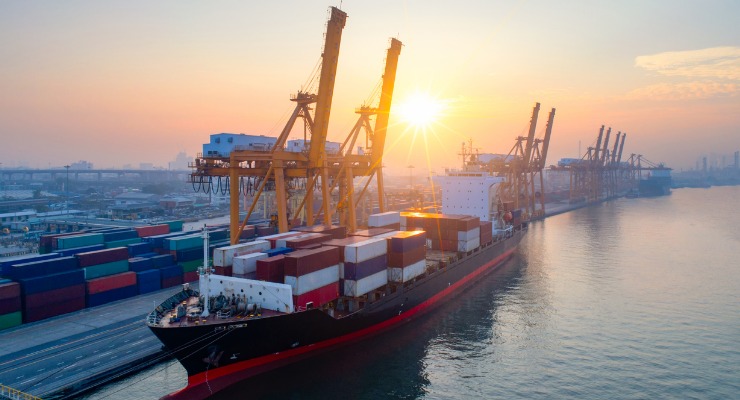
Shipment processes are complicated, with many steps involving multiple countries and forms of documentation to secure a successful delivery. Following numerous disputes caused by a breakdown in communication, three letter acronyms for shipping terms were introduced worldwide to cut down the confusion. The shipping term CNF is one of the most readily used.
CNF Meaning
CNF stands for Cost and Freight. This means the supplier of goods is responsible for the freight-related charges. The buyer of the products is responsible for organising and paying the insurance on the goods.
CNF is also known as C&F and CFR. All terms have the same meaning.
CNF Freight & Incoterms
Known as Incoterms; a dozen three letter acronyms are used as a common language for ownership of goods, as they pass from seller to buyer.
Before the International Chamber of Commerce (ICC) published the Incoterms in 1936, there were numerous shipping disputes caused by language difficulties and miscommunication about who assumed responsibility for goods and when. The current version published on 1 January 2011 is the eighth one and is known as Incoterms rules 2010. CNF is listed as CFR Cost and Freight in the Incoterms.
For 80 odd years, the Incoterms have provided the rules for the sale of goods worldwide for importers, exporters, transport companies, insurers and lawyers.
The Incoterm for the shipping method should be included in a commercial agreement or contract during the engagement process. If there are any disputes, the contract can be consulted to establish corresponding jobs, which party is responsible and gain a resolution. Therefore, part of the shipping procedure includes both parties carefully reviewing any agreement before accepting the terms.
The inclusion of an Incoterm on a shipment contract ensures the seller and buyer know:
- What the price includes
- Who is responsible for organising shipping
- What is involved in the shipping, i.e. transport to the origin port
- The shipping port of origin and destination
- Who is responsible for coordinating the insurance
- When risk begins and ends for each party
FAQs about the Shipping Term CNF
Who Assumes Responsibility for the Goods & When?
Under CNF, the seller organises the loading and transporting of goods all the way to the destination port. The seller is responsible for the transportation cost of freight to the final port.
The risk of the goods being damaged on lost stops being the seller’s responsibility from the time the products are loaded on to the vessel. During transit and unloading of the goods, the buyer assumes the risk and must organise adequate insurance.
CNF vs CIF: What’s The Difference?
If the seller/supplier of the goods organises insurance during transport, the term is CIF (Cost Insurance and Freight). The supplier assumes the risk, and is responsible for arranging and paying for the insurance. With CNF, the buyer of the products is responsible for organising and paying the insurance during transit.
CNF vs FOB?
Free on Board (FOB) means the seller delivers the goods on board the ship nominated by the buyer. Once the products are on board, the risk of damage and loss of the goods passes to the buyer. The buyer is therefore responsible for insurance of the goods.
Does CNF Relate to All Forms of Transport?
CNF and three other Incoterms (FOB, CIF and FAS) relate to goods being transported via the ocean or inland waterways. Another seven Incoterms rules refer to any mode of transport.
Should You Use CNF as a Buyer?
Most of the imports we arrange for clients are either FOB or EXW. We generally avoid CNF as the supplier charges a premium markup for arranging and being responsible for the freight. We can arrange freight and shipping for less than most suppliers will charge for CNF terms.
If you would like more information about shipping your goods to Australia, call Vara Allied on (08) 6115 0118 or contact us online.